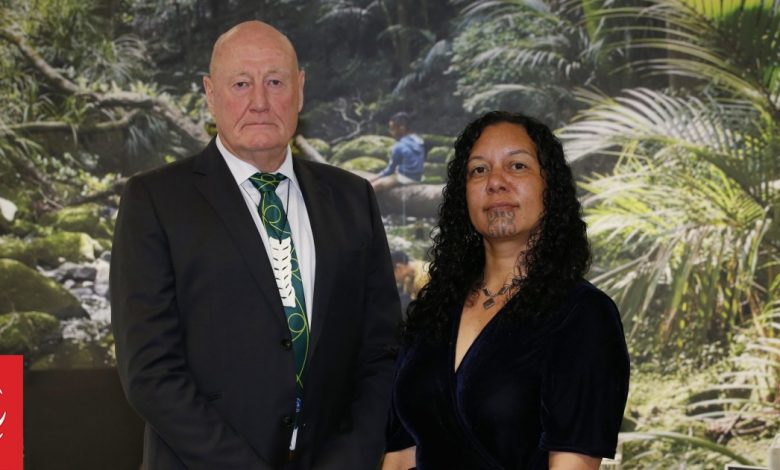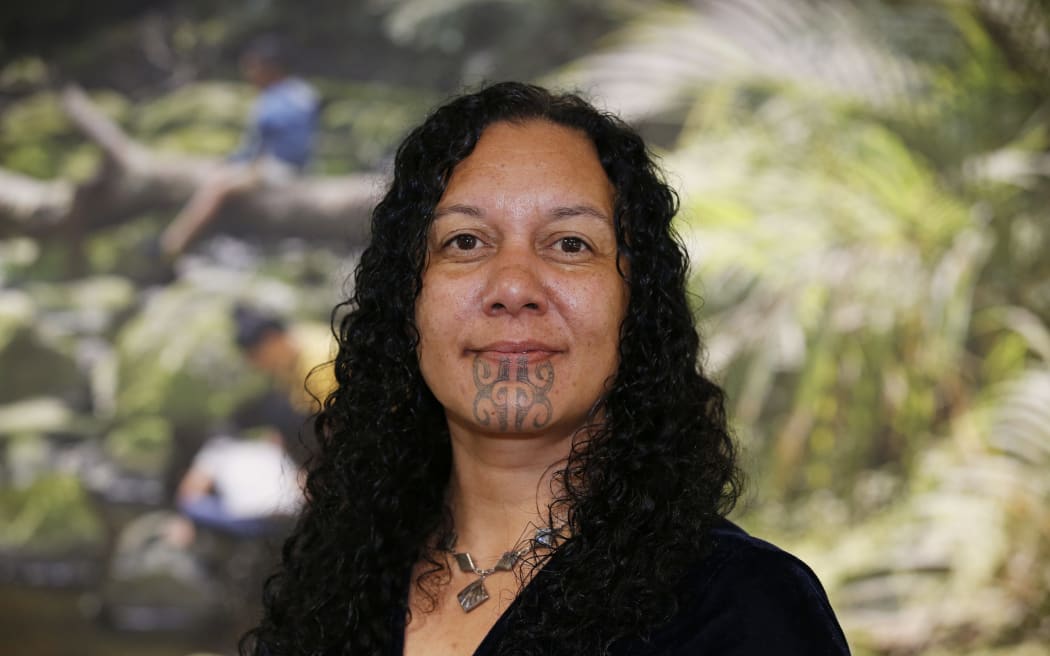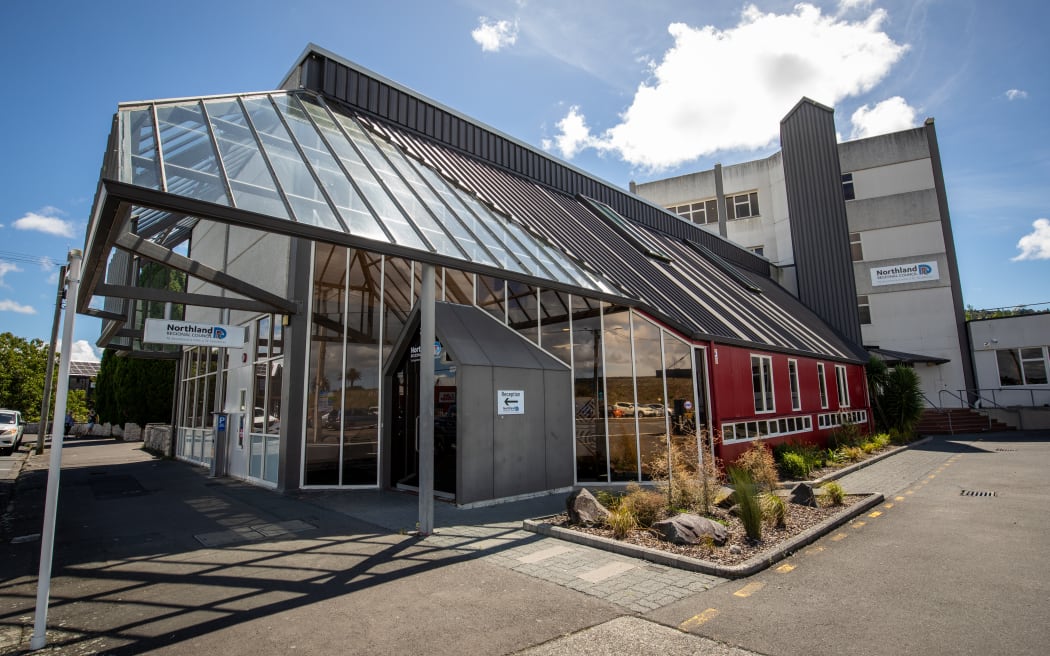Seismic power shift sees deputy chair facing chop at Northland Regional Council

Northland Regional Council deputy chair Jack Craw is in the firing line as a group of councillors attempt to oust him from his role.
Five councillors – John Blackwell, Joe Carr, Geoff Crawford, Peter-Lucas Jones and current chair Tui Shortland – have put forward a motion to remove Craw as deputy chair ahead of a council meeting on 28 November.
It comes after Shortland (Ngāti Hine, Ngātiwai, Te Rarawa) resigned from the Northland Regional Council (NRC) chair’s role on 6 November, effective from 10am on 28 November – the council’s next meeting.
Shortland said she had resigned because her position had become untenable.
She was New Zealand’s first wāhine Māori regional council chair when elected shortly after the 22 October local elections.
Shortland will stay on as a Te Raki Māori Constituency councillor. A new chair will be decided at the 28 November meeting.

Fellow Te Raki Māori constituency councillor Peter-Lucas Jones (Te Aupōuri, Ngai Takoto) said Shortland had provided a professional platform for constructive and strategic debate, and led councillors to reach decisions, using her corporate governance expertise.
“Tui has an eye for detail, is a disciplined leader, focuses on strategic matters, and sets high governance standards, paying attention to transparency, trust, confidence and accountability,” Jones said.
‘There’s no participatory democracy’
Local Democracy Reporting Northland asked Craw for his comment about what was happening around the council table.
“I am saddened for the staff and management, and for the people of Northland, about the way that democracy is being ridden roughshod over,” Craw said.
“A group of councillors is now running the whole show.
“There’s no participatory democracy any more,” Craw said.
Craw said he would give himself a B-plus or A report card for his performance as deputy chair since being elected a year ago, which has seen him working up to 50 hours a week.
A divided council?
The quintet of councillors represents a seismic power shift in the nine-member council.
Of the five politicians, elected in October 2022, all but one are first timers.
The group has moved to remove the four returning politicians, re-elected after the preceding council term, from all their NRC roles across seven committees.
There was an almost 55 percent change in NRC councillors at the October 2022 local elections.
The council also has two new Māori ward councillors from its first-time Te Raki Māori Constituency.
The quintet’s notice of motion to remove and replace the deputy chair is among 10 notices of motion it has in the 28 November council meeting agenda which aims to cement council governance change.
These will each be voted on by the full council – against a backdrop where the five form a 55 percent majority bloc.
Local Democracy Reporting Northland understands there has been growing tension among council members.
There have been several significant contributors to this tension which has now boiled over.
These include conflicts over the development of the region’s new Draft Freshwater Plan and NRC’s 2024 -2034 Long Term Plan (LTP).

Why did the council chair resign?
Shortland said she had resigned because her position had become untenable, but she would not comment further on why it had become that way.
Neither did she comment on whether she resigned ahead of potentially being pushed.
“My decision to resign as chair will enable a reconfiguration of leadership and support a governance reset,” Shortland said.
She said she had done a good job as NRC chair for the new council’s first year.
“I am proud to have served as the first indigenous wāhine Māori chair of the Northland Regional Council,” Shortland said in an open letter to staff on 20 November.
“Recent events have brought certain aspects of our governance and operations into focus, and I want to assure each one of you that I am fully dedicated to fostering an environment of honesty and accountability.”
In times of challenge, it was crucial to come together as a team and focus on their commitments to the community, she said in the letter.
“Transparency has always been at the core of my leadership philosophy. I believe that authentic and honest communication is the bedrock of trust, and I want to assure each one of you that I am dedicated to fostering an environment of transparency within our council.”
The power shift at council’s table
Craw said he would be stepping down at Tuesday’s meeting, as the quintet push was a majority vote.
However, he said he would stay on as a councillor and work hard for the people of Northland, in spite of the removal.
In response to Craw’s comments, Crawford acknowledged there was a power shift happening, but that what was unfolding was not riding roughshod.
Crawford said what was happening was not causing issues for staff or for Northland.
“This is democracy in action,” Crawford said.
Shortland said she rejected the deputy chair’s comments and due process had been followed with the meeting procedure.
Shortland said she was not trying to cause any agitation, but simply trying to regroup so the council could better serve the people of Northland.
She would not comment on whether she would be open to the deputy chair’s role.
Meanwhile, Carr said the deputy chair’s comments showed a lack of statesmanship and it was time for a council refresh.
Blackwell said riding roughshod was not his way of doing things.
The five councillors might be working as a bloc for the 28 November meeting, but that did not mean they would always be doing so into the future, he said.
The group did not see eye-to-eye on everything so would vote differently from each other on various matters, Blackwell said.
He said he hoped the governance changes would bring a more realistic approach to NRC around dealing with the region’s new Draft Freshwater Plan.
In response to Craw’s comments, Jones said democracy was a sibling of transparency, trust and accountability. The notices of motion that would be addressed at next week’s council meeting were attempts to restore democracy and equity, he said.
What happens next?

Councillors will on 28 November decide whether to get rid of Craw and to elect a replacement.
The quintet will also work to remove Craw from several key council and inter-council/inter-organisational committee positions.
Blackwell has signed the push to remove Craw from the council’s biosecurity and biodiversity working party – in spite of Craw’s high-profile career in the sector. Crawford currently chairs this group.
Carr has signed the push to oust the deputy mayor as an NRC representative on Northland’s landmark inter-council governance-level joint climate change adaptation committee. Craw is currently alternate deputy chair on this committee.
Carr has also signed the group’s notice of motion to get rid of Craw from the powerful inter-council regional governance-level Northland civil defence and emergency management committee, where he is alternate NRC representative – with Shortland to replace him.
According to the news on Radio New Zealand




